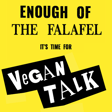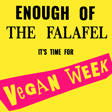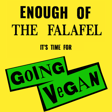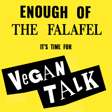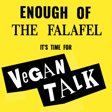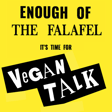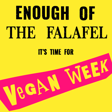
170- No Mow May...and other garden-based animal-friendly tweaks
It's nothing to do with your body hair shaving routine...No Mow May is in fact an initiative looking to promote wildflower growth...which it turns out may just be more effective than you think, in terms of helping out animals too. In this episode, Ant & Julie dip their toe into a few different tweaks folk could make with a garden- or similar space- to help improve outcomes for animals.
For more on No Mow May, visit https://www.plantlife.org.uk/campaigns/nomowmay/
Vegan composts can be found at the following retailers (amongst others), but read the label carefully, as some of these companies do still sell animal-derived composts too:
https://www.fertilefibre.com/collections/organic
https://cocoandcoir.com/blogs/coir-compost/the-guide-to-vegan-compost/
https://rocketgro.co.uk/products
As ever, we love hearing your views on the topics under discussion (or anything else!) so do drop us your thoughts via enoughofthefalafel@gmail.com
*************
Enough of the Falafel is a community of people who love keeping on top of the latest news in the world of veganism & animal rights. With the Vegan Talk podcast, we aim to develop listeners' (& our own) thoughts around key issues affecting veganism & the animal rights movement; giving our opinions, whilst staying balanced; remaining true to our vegan ethics, whilst constantly seeking to grow & develop.
Each week we home in on one topic in particular and pick it apart in more detail. If you have a suggestion for a future show, do get in touch via enoughofthefalafel@gmail.com.
*******************
Thanks everyone for listening; give us a rating and drop us a message to say "hi"; it'll make our day!
Julie & Anthony
